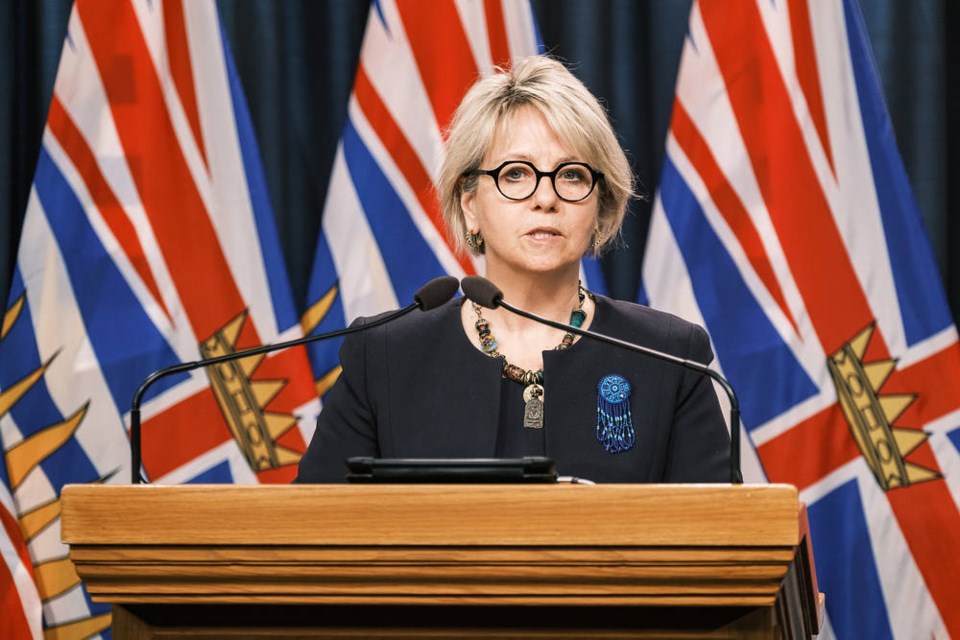The province will be getting even fewer doses of COVID-19 vaccine in the coming weeks than expected, provincial health officer Dr. Bonnie Henry said Monday.
As a result, the province will change its immunization plan — released only three days ago — by prolonging the gap between first and second doses to 42 days, instead of the manufacturer-recommended 21 days.
Both the Pfizer and Moderna supplies are affected, said Henry, saying no one is to blame.
It’s not known how much vaccine will be received in the first two weeks of February, Henry said. As of Monday, about 119,850 people have been vaccinated for COVID-19 in B.C. There have been 56 adverse events reported, including anaphylaxis and one case of Bell’s palsy but no related deaths.
“Because of this extremely limited supply over the next few weeks, we have made the decision that we will be delaying second doses … for this short period of time,” she said. It means using the short supply on hand to complete immunizations in long-term care and to address outbreaks in hospitals and communities, Henry said. As of Monday, 33,023 long-term-care staff and 25,701 residents had been vaccinated, almost 3,000 of whom have had two doses.
“This is about putting out fires before they get out of control,” Henry said. “It’s about choosing, in the short term, to give more people this protection from dose one instead of giving some people full protection and leaving others with none.”
B.C. made the decision early on to delay second doses of the COVID-19 vaccine to 35 days in order to vaccinate as many people as possible.
Both the Pfizer-BioNTech and Moderna vaccines require a second dose to maximize their effectiveness and give longer lasting protection. However, protection after even a single dose is more than 90 per cent, and this protection lasts for at least six weeks, Henry has said.
News of the vaccine delay came as officials reported 1,344 new confirmed cases of COVID-19 on Monday, including 73 in the Island Health region.
There are now 4,392 active cases of COVID-19 in the province, including 211 on the Island, the majority in the central region.
A total of 328 are in hospital, 16 of them on Vancouver Island. Of 68 people in intensive care, five are in the Island Health region.
Twenty-six additional deaths linked to the virus were reported for total of 1,154.
There are now five cases of the highly transmissible U.K. variant of COVID-19 in the province and three cases of the South African variant, Henry said.
The first case of the U.K. variant was brought to the Island by someone who travelled in the United Kingdom. It spread to members of that person’s household. Cases of the South African variant in B.C. weren’t linked to one another and were acquired in the Lower Mainland and not via travel, which Henry said is “something we are very concerned about.”
Henry said the province has plateaued at about 500 new cases of COVID-19 a day but that this is still “too many.” “Five hundred people a day being affected is too high,” Henry said. “It’s at a point where it takes very little for it to skyrocket. But it also takes very little additional effort for all of us to bend that back down to where we were in the summer last year.”
People should not be travelling within the province, within Canada or internationally, she said.
“I am asking you now, as much as possible, more than you have ever done before to stay home, to stop the social interactions,” Henry said.
She asked people to work from home when possible and focus on infection prevention and control measures that will allow children to stay in school and the health-care system to continue to function.



